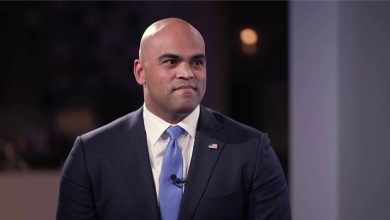House passes two-step plan to fund government agencies
In a critical move to avert a government shutdown, the House of Representatives, under the guidance of Speaker Mike Johnson, has passed a two-step funding plan, marking a significant legislative maneuver just days before the looming deadline.
Speaker Mike Johnson, recently elected to lead the House, played a pivotal role in steering the first major piece of legislation under his leadership. The plan, which he unveiled last Saturday, aims to extend federal funding for various government agencies and programs in two phases, one set until January 19 and another until February 2. This approach is intended to avoid a massive end-of-year spending bill and allow more time for spending-level negotiations.
The bill saw substantial support from House Democrats, overcoming opposition from several Republicans. The final vote tally was 336 to 95 in favor of the continuing resolution. Johnson’s strategy was to circumvent the usual year-end omnibus spending package, which he described as a “Christmas monstrosity,” and instead shift the government funding paradigm. His plan also aims to enhance the GOP’s position to demand border security, oversight of Ukraine aid, and support for Israel.
The resolution’s passage in the House virtually eliminates the threat of a shutdown, with the Senate expected to quickly approve the bill. This swift action was facilitated by the House suspending its rules to raise the passage threshold, requiring Johnson to garner support from a significant number of Democratic lawmakers.
Democratic leaders, emphasizing the need to prevent economic and national security repercussions of a shutdown, backed the resolution. They stressed that any continuing resolution must maintain fiscal year 2023 spending levels and be free of extreme right-wing policy riders.
The House Freedom Caucus, a group of far-right Republican lawmakers, opposed the stopgap measure, citing the absence of spending cuts and provisions to bolster border security. Their stance highlighted ongoing negotiations within the Republican Party and the differing viewpoints on fiscal and security policies.
The White House, while labeling Johnson’s two-step plan as “untested,” expressed its intent to avoid a funding lapse. In the Senate, Majority Leader Chuck Schumer showed relief that the proposal didn’t include funding cuts and expressed a commitment to expedite its passage.
This funding proposal was a significant test for Johnson, who ascended to the speakership in a tumultuous period for House Republicans. His approach differs from that of his predecessor, Kevin McCarthy, whose agreement with Democrats triggered a backlash and ultimately cost him the gavel. Johnson’s “laddered” resolution aims to prevent Congress from being rushed into accepting a massive spending package.
Left out of Johnson’s proposal is emergency assistance for Israel and Ukraine. The absence of these provisions raises questions about when Congress might address additional funding needs. Johnson emphasized that the short-term measure would allow for more thorough discussions on oversight for Ukraine aid and support for Israel.



